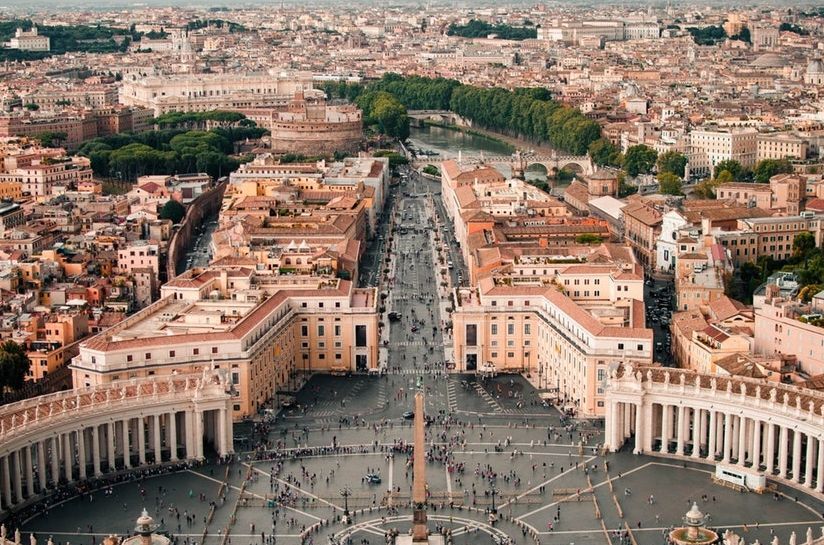How to Become an Italian Citizen: The Different Paths to Citizens
How to Become an Italian Citizen: The Different Paths to Citizens

If you’re of Italian ancestry, you might be curious about how to become an Italian citizen. Or, maybe your spouse-to-be is an Italian citizen and you want to know whether you’ll qualify for Italian citizenship after you’re married. Perhaps you’re an American citizen living in Italy and you want to know how to gain permanent Italian citizenship.
Whatever your situation, we outline the qualifications for dual citizenship below. First, let’s look at the benefits of getting Italian citizenship.
Why Become a Dual Citizen?
There are some significant advantages to having dual American-Italian citizenship. Here are a few:
- You’ll automatically become an EU (European Union) citizen, which will allow you to work, live, and study in EU countries without a visa.
- Once you become an Italian citizen, all your children under the age of 18 will automatically become Italian citizens.
- You’ll have easier access to public health care services and high quality public education if you decide to establish residency in Italy.
- You will establish a firm identity with your Italian heritage.
Note that if you’re an American citizen and you gain Italian citizenship, you will not lose your U.S. citizenship—you will become a dual citizen.
How Do You Apply for Dual Citizenship?
There are several ways to qualify for Italian citizenship. You may automatically qualify by descent if you have an Italian ancestor—with some caveats. Other ways to qualify are through marriage and through naturalization (meeting certain residency requirements). Let’s explore:
By Descent (Jure Sanguinis)
If you have a parent who was born in Italy and was still an Italian citizen at the time of your birth (and you can prove it with documentation), you may qualify for Italian citizenship under jure sanguinis (“right of the blood”).
There are no generational limits to passing down citizenship jure sanguinis, therefore it’s also possible to qualify for dual citizenship through a paternal grandparent, or great-grandparent, if you can prove that he did not become a naturalized citizen (by taking the “Oath of Allegiance”) before your father/mother or your grandfather (and sometimes grandmother) was born. However you cannot skip a generation, meaning that you must be able to derive your Italian Citizenship from your last Italian born ancestor. In other words, as long as you can prove your grandfather/great-grandfather was still an Italian citizen at the time your father/mother or grandfather was born. However you cannot skip a generation, meaning that you must be able to derive your Italian Citizenship from your last Italian born ancestor.
The rules for qualifying through a maternal grandparent (your mother’s parents) are more complicated. You can still qualify, but only if you were born after January 1, 1948, and you can prove your maternal grandparent was an Italian citizen at the time of your mother’s birth.
Through Marriage (Jure Matrimonii)
As of April 27, 1983, the foreign (e.g., American) spouse of an Italian citizen is eligible to request Italian citizenship after two years of legal residence in Italy or three years of living abroad. If the couple has children (natural or adopted), this time is reduced by half.
For marriages prior to April 27, 1983, the foreign spouse of an Italian citizen is granted automatic Italian citizenship.

Through Naturalization
You can qualify for citizenship by naturalization if you’ve been a legal resident of Italy for at least 10 years, have no criminal record, and have adequate financial resources.
You may also qualify for Italian citizenship through naturalization after living in Italy for a certain number of years if:
- You have a grandparent who is an Italian citizen.
- You’re a national of an EU member state.
- You’re a refugee.
- You’re an adopted child of an Italian citizen.
Consult an Expert
We’ve just scratched the surface of the different circumstances under which a person may qualify for dual American-Italian citizenship. Additional laws—like the Italian Citizenship Law N. 124 of March 8, 2006, which says that people who were Italian citizens living in Istria, Fiume, and Dalmazia as of September 15, 1947—may also qualify you for dual citizenship.
There is also a new amendment to the law 555/1912 to be taken in consideration, dated October 4, 2018.
The easiest way to find out if you qualify is to consult an expert like the Italian American Citizenship Assistance Program. We’re here to help you navigate and understand the often-complex Italian dual citizenship requirements.
Our Italian citizenship program has helped hundreds of people discover whether they are eligible for Italian citizenship! Contact us today to learn more.

